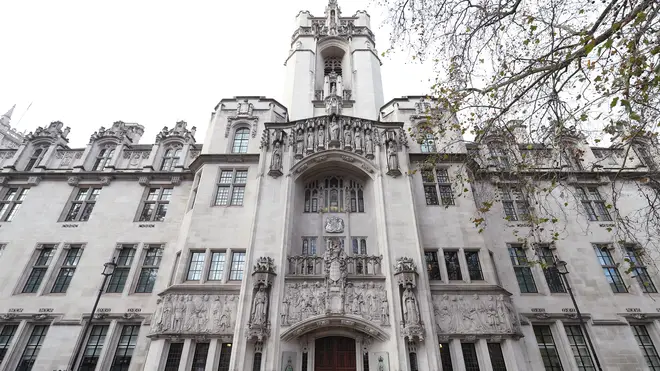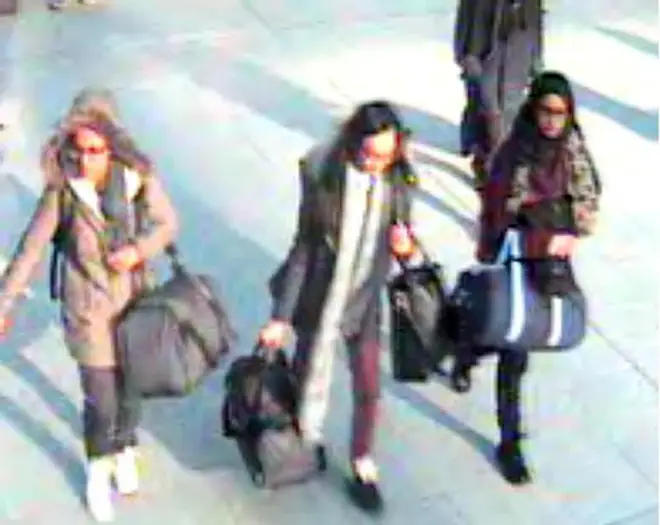
Simon Marks 3pm - 7pm
23 November 2020, 11:09

Lawyer says Shamima Begum case has 'wide implications' for IS brides
An immigration lawyer has told LBC that Shamima Begum's Supreme Court hearing challenging the deprivation of her British citizenship will have "wider implications" for other IS brides.
Ivon Sampson, Head of Immigration and partner at Falcon Solicitors, told Nick Ferrari: "This is a very important case not just for Ms Begum but for other ISIS brides who are British citizens but have parents not born here," he explained.
"That is the wider implication of this ruling.
"The reason Ms Begum's British citizenship was deprived of her is because she cannot get citizenship from her parents."
Ms Begum, now 21, was one of three east London schoolgirls who travelled to Syria to join the so-called Islamic State group (IS) in February 2015.
Then-home secretary Sajid Javid revoked her British citizenship on national security grounds later that month.

Nick then questioned Mr Sampson over whether Ms Begum could return to the UK if her citizenship was revoked on national security grounds.
"If a citizen of this country is believed to be a threat to national security, and they have parents that are not born here, they too could have their citizenship revoked," he explained.
"It's a principle, as there is a two tier system of being British in this country at the moment."
Nick then asked what the judges need to determine in this case.
"The judges are considering whether Ms Begum should be granted leave to enter so that she can pursue her appeal against the secretary of state's decision to deprive her of British Citizenship," Mr Sampson explained.
"Second, they need to decide if the Special Immigration Appeals Commission was wrong to apply judicial review principles to Ms Begum's appeal, instead of giving her full rights to appeal.
"And finally, if she is refused leave to enter should her appeal against the deprivation decision be allowed?"

In July, the Court of Appeal ruled that "the only way in which Ms Begum can have a fair and effective appeal is to be permitted to come into the United Kingdom to pursue her appeal".
Lord Justice Flaux - sitting with Lady Justice King and Lord Justice Singh - said: "Fairness and justice must, on the facts of this case, outweigh the national security concerns, so that the leave to enter appeals should be allowed."
Later that month, the Court of Appeal gave permission for both the Home Office and Ms Begum to take their case to the UK's highest court, and ordered a "stay" on Ms Begum's return "until further order by the Supreme Court".
At a remote two-day hearing starting on Monday, the Supreme Court will consider whether Ms Begum should be allowed to return to the UK to appeal against the deprivation of her British citizenship.

Shamima Begum's lawyer on her appeal for UK citizenship
Nick also asked Mr Sampson how long a hearing like this is likely to take.
He responded that a definite time frame could not be given, but it "certainly won't be weeks."
He also asked where Ms Begum is in the meantime and whether she still remains stateless.
"She is being detained by the Syrian defence force as far as we are aware," Mr Sampson stated.
"The UK government is arguing that she is not stateless, but Bangladeshi officials argue that she is.
"If she is allowed in, she will be able to lean on Article 8 rights, which she cannot do while she is in Syria.
"That's the key point, the government don't want her in, as the moment she is in she can make an application under Article 8 to remain in the UK, and the government doesn't want that."
Article 8 of the European Convention on Human Rights provides a right to respect for one's "private and family life, his home and his correspondence", subject to certain restrictions that are "in accordance with law" and "necessary in a democratic society".